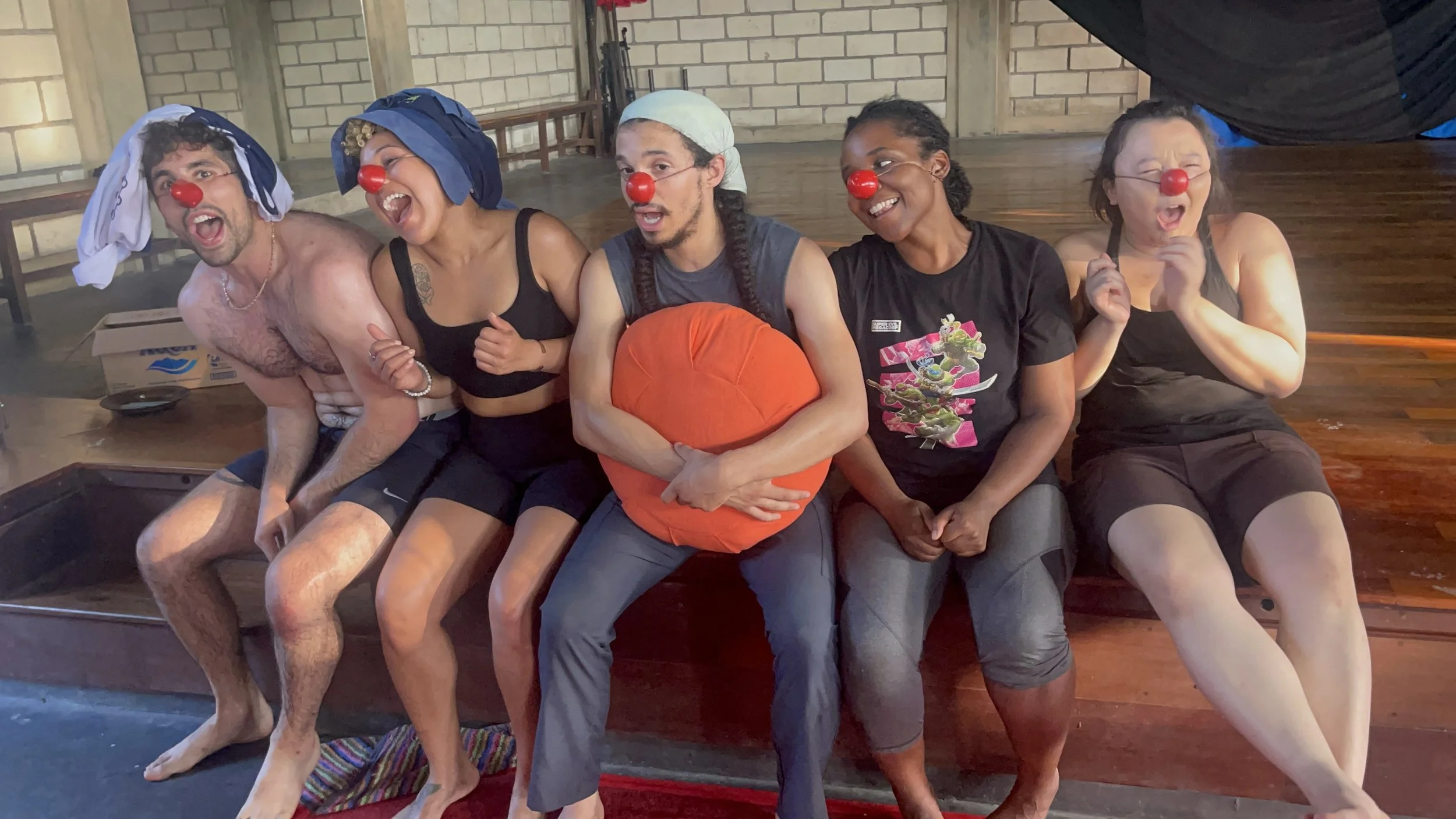From Laughter to Presence: The Journey of Clowning and Taksu for Actors
‘Failure’ is welcomed and celebratedThe Transformative Art of Clowning: Embracing Vulnerability, Presence, and Taksu & Clown
Clown, as an art form, is often misunderstood. Its roots run deep, extending far beyond the foam red noses, funny faces, and oversized shoes we might associate with it. At its core, clowning is about vulnerability and authentic expression; it allows actors to connect deeply with themselves and the audience. Unlike conventional acting, clown pushes performers into untapped physical, emotional, and authentic spaces where actors embrace the unknown, allowing them to fully inhabit the moment without the safety net of overintellectualized performance and character interpretation.
Clown invites actors to enter a state of openness and playfulness where ‘failure’ is welcomed and celebrated. This space nurtures emotional honesty and the freedom to "fail beautifully," which not only makes the work compelling but profoundly human.
The Philosophy Behind Clown
Clown opens pathways to authenticity. It hinges on embracing failure, play, and presence. The heart of clown is about stepping beyond performance conventions, abandoning self-consciousness, and accessing the deeper, unsocialized impulse to play. To be a clown is to laugh at ourselves in all our awkward, flawed, and beautiful humanity. This is especially crucial for actors, who are often conditioned to present a perfect, polished version of themselves on stage or screen.
A parallel concept in Balinese performance philosophy is taksu, often described as a kind of spiritual charisma or life force—the moment when God appears. The Balinese recognize taksu as a gateway that exists within us, a powerful, mystical energy that, when awakened, brings a performer into alignment with their highest potential. The Balinese say that wherever there is laughter, Taksu is present. Achieving taksu demands honesty and self-awareness and abandoning the ego into the unknown of something greater than ourselves. Just as a clown reaches their fullest expression by becoming deeply honest with themselves while interacting with the audience as their greatest scene partner.
Benefits of Clown Training for Actors
Clown training offers actors an invaluable set of tools, nurturing skills that strengthen their performance in any context:
Enhanced Emotional Expression: Clowning encourages actors to open up and share their genuine emotions, amplifying their emotional range. The freedom to be vulnerable helps actors explore deeper parts of themselves, which translates into richer performances.
Building Confidence: Facing the unknown and embracing failure with humour builds resilience. Actors who train in clown become more courageous, learning to trust their instincts even under pressure. This sense of trust aligns with embracing the unknown realms of inspiration and imagination housed in the embryo of taksu.
Improvisational Skill: Clown is rooted in spontaneity, which fosters strong improvisational skills. Learning to respond to the unexpected, to audience reactions, or even to one's own mistakes teaches actors to remain flexible and inspired on stage.
Audience Connection: The raw vulnerability of clowning draws audiences in. When an actor openly shares their imperfections, the audience feels seen, creating a communal experience. This quality parallels taksu, where performance transcends the ordinary. The performer, alive with taksu, carries a magnetic energy that naturally captivates the audience transcending emotional connection.
Taksu & Clown in Acting
To truly understand the depth of clown, one can look to taksu, a concept that requires more than just skill or technique. In Balinese Hindu tradition, life arises from the balance of two energies, perdana (mother energy) and perusa (father energy). Similarly, the energy of taksu combines presence and spirit, transcending the boundaries between performer and audience. The key to taksu lies in an inner awareness and aliveness—giving energy to a performance from one’s deepest inner truth.
For actors, the journey to taksu is akin to the journey of the clown: they must find a place of stillness, play, and freedom within the chaos, a way to maintain presence in a highly unpredictable environment. My Balinese teacher I Wayan Dibia says that training is important, and it is even more crucial to make training and performance congruently alive. This aliveness, this spontaneity, is the essence of taksu and what also gives clown its transformative power.
Creating Taksu in Performance
Training Environments: In a studio setting, actors can experiment with inviting taksu by integrating technical skill with emotional honesty. Techniques like Budi Miller Taksu Training (BMTT), Fitzmaurice Voicework, Mask Work, Michael Chekhov, Grotowski, Movement Practices, Bioenergetics and gatherings like Satsang can support actors by freeing their bodies and uninhibiting their voices. However, taksu is not something that can be taught—it is a self-discovery process where performers must cultivate an inner awareness and attunement to their own energy and others.
Performance Environments: The resonance of taksu occurs in live performance, an environment where the unpredictability of the audience and setting awakens actors to maintain their presence of form—character, text, imagination. Here, clown becomes a valuable practice, as actors learn to adapt, play, and stay open. To connect with the spirit of performance, actors must remain honest with themselves, adjusting moment-to-moment without losing their grounding keeping the performance alive and engaging.
A Path of Transformation
Clown is, at its heart, a deeply spiritual endeavour that aligns with ancient performance wisdom. By embracing its principles, actors can become more expressive, fearless, and authentic. Both clown and taksu remind us that acting is not just about portraying a character; it's about opening up and sharing our spirit with others. As we bring more of ourselves to each performance, we bridge the gap between actor and audience, creating a shared experience of humanity that is honest, moving, and profoundly transformative.
Dr.B





